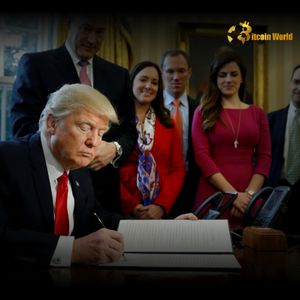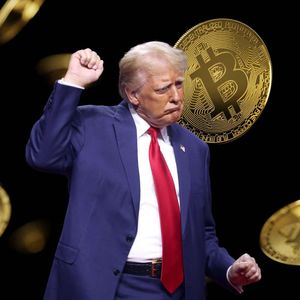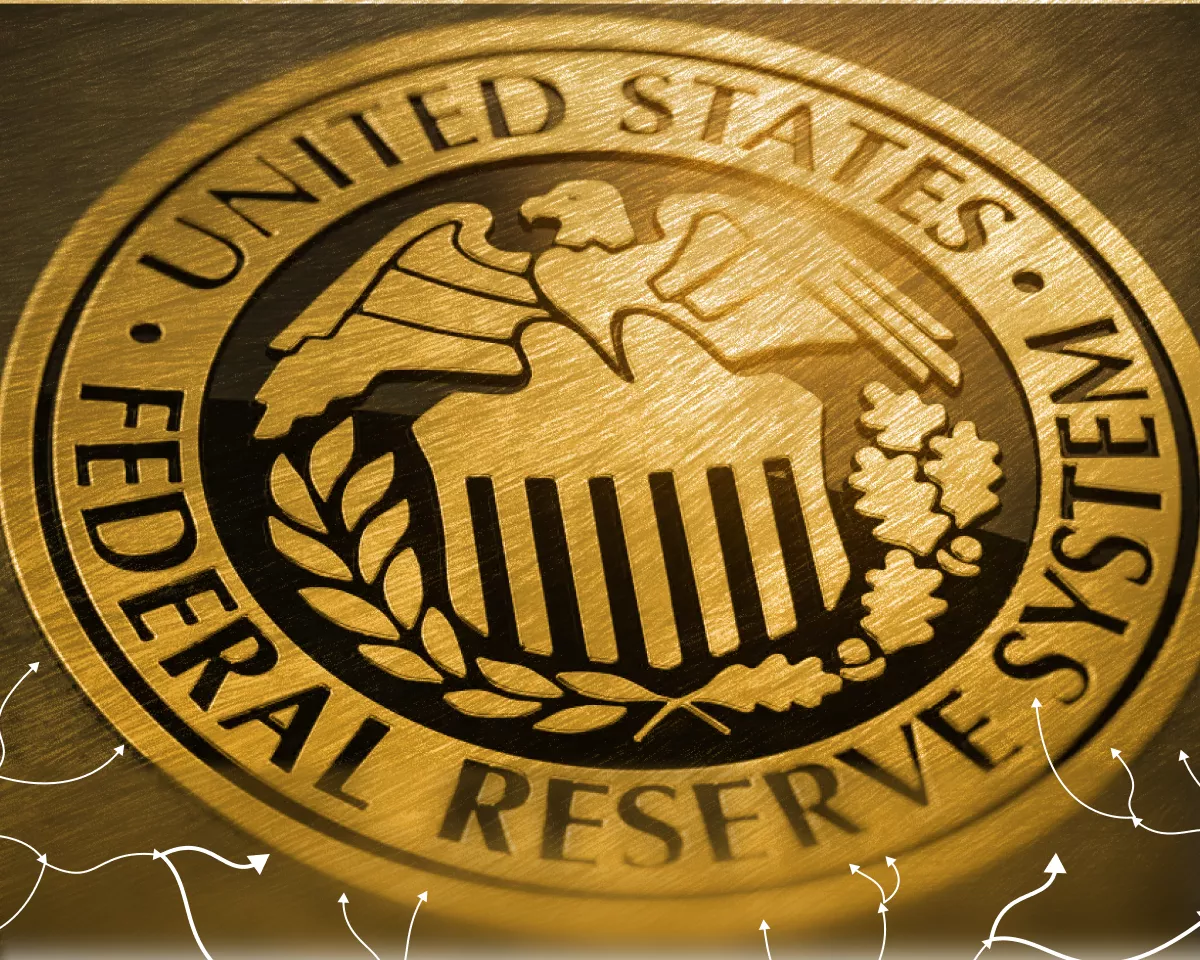BitcoinWorld Stablecoin Regulation: Trump Demands Swift House Action The world of cryptocurrency is never short on headlines, and the latest comes directly from a former occupant of the White House. Former U.S. President Donald Trump has reportedly weighed in on the ongoing debate around digital assets, specifically calling for the rapid passage of a stablecoin bill in the House of Representatives . This move signals a growing political focus on how these increasingly popular digital currencies should be governed in the United States. Why is Donald Trump Focusing on Stablecoin Regulation Now? Trump’s call for swift action on stablecoin regulation isn’t happening in a vacuum. It follows recent legislative movement in the Senate. Specifically, the Senate recently approved the GENIUS Act. While the full details and path of this legislation are complex, the reported version introduces significant requirements for companies that issue stablecoins. This includes things like mandatory licensing, ensuring full reserve backing for the stablecoins they issue, and requiring annual audits for larger issuers (those with a market capitalization over $50 billion). The bill also reportedly aims to bring foreign stablecoin entities operating in the U.S. under regulatory oversight. So, why the sudden public push from Trump? There are several potential factors at play: Political Positioning: As a prominent political figure, taking a stance on emerging technologies like crypto can be a way to engage with a growing voter base interested in the space or to signal a forward-thinking approach to finance. Economic Stability Concerns: Stablecoins are designed to maintain a stable value, often pegged to traditional currencies like the U.S. dollar. Their increasing use in trading and payments raises questions about financial stability if a major stablecoin were to fail. Regulation aims to mitigate these risks. Maintaining U.S. Financial Leadership: Some argue that clear U.S. regulation is necessary to prevent other countries from setting the global standard for digital assets and to ensure the U.S. dollar’s continued prominence in the digital age through well-regulated dollar-pegged stablecoins. Industry Clarity: The crypto industry itself has often called for regulatory clarity to foster innovation and investment within the U.S., rather than seeing businesses move overseas due to uncertainty. Trump’s endorsement adds a unique political layer to the legislative efforts already underway. While the exact details of the stablecoin bill he is referencing in the House might differ slightly or be a companion to the Senate’s efforts, the overall goal appears consistent: establish a clear regulatory framework for stablecoins. Understanding the Proposed Rules: What Does the GENIUS Act Suggest? The Senate’s approval of the GENIUS Act provides a glimpse into the types of rules policymakers are considering for stablecoins. Based on reports, here are some key requirements: Requirement Description Potential Impact Mandatory Licensing Issuers would need specific licenses to operate. Increases barrier to entry; provides regulatory gatekeeping. Full Reserve Backing Stablecoins must be backed 1:1 by safe, liquid assets. Enhances stability and user confidence; limits algorithmic stablecoins. Annual Audits (> $50B MCap) Large issuers face mandatory yearly financial audits. Increases transparency and accountability for major players. Oversight of Foreign Entities Rules would apply to foreign stablecoin issuers serving U.S. customers. Expands U.S. regulatory reach; addresses potential loopholes. These requirements are designed to address risks associated with stablecoins, such as the potential for ‘runs’ if users lose confidence in the backing assets, or their use in illicit finance. By mandating full reserves and regular audits, the aim is to ensure that stablecoins are genuinely stable and that users can redeem them reliably. What Does Rapid Passage in the House of Representatives Mean? Calling for ‘rapid passage’ in the House of Representatives is a strong political statement. The legislative process in the U.S. is often slow and involves multiple committees, debates, and potential amendments. A call for rapid passage suggests a desire to bypass lengthy procedures or to prioritize this issue above others. This could involve: Pushing for a bill to be brought directly to a floor vote. Expediting committee reviews. Encouraging bipartisan cooperation to speed up the process. However, achieving rapid passage is challenging, especially on complex and novel topics like crypto regulation . Different factions within the House may have competing ideas about how stablecoins should be regulated, or whether they should be regulated at all at this stage. The specific committees involved (like Financial Services) would need to deliberate and potentially reconcile differences with the Senate version. The push from a figure like Donald Trump, while not holding official power currently, can influence the political discourse and potentially pressure lawmakers to act. It elevates the issue of the stablecoin bill from a niche topic to one discussed at higher political levels. The Broader Landscape of Crypto Regulation in the US Trump’s comments on stablecoins are part of a larger, ongoing conversation about crypto regulation in the United States. Various government bodies, including the Treasury Department, the Federal Reserve, the SEC, and the CFTC, have all expressed interest or taken action regarding digital assets. Stablecoins are often seen as a potential starting point for broader regulation because of their links to traditional finance and their use as a bridge between fiat currency and the wider crypto ecosystem. Past attempts at comprehensive crypto legislation have faced hurdles due to disagreements over jurisdiction, scope, and the fundamental nature of different digital assets. Focusing on stablecoins might be seen as a more achievable first step, potentially paving the way for future rules on other types of cryptocurrencies, exchanges, and decentralized finance (DeFi). Key questions in the broader crypto regulation debate include: Which assets are securities, commodities, or something else entirely? Who should regulate different aspects of the market (e.g., SEC, CFTC, banking regulators)? How to balance consumer protection and financial stability with fostering innovation? How to address issues like illicit finance and money laundering in the crypto space? The outcome of the stablecoin bill in the House of Representatives , influenced by calls like Trump’s, could set a precedent or at least provide momentum for addressing some of these broader questions. Potential Benefits and Challenges of Strict Stablecoin Rules Implementing strict rules for stablecoins, as suggested by the GENIUS Act and advocated for by those like Trump, comes with potential benefits and challenges: Potential Benefits: Increased Confidence: Clear rules, especially full reserve requirements and audits, can increase user and institutional confidence in stablecoins, potentially leading to wider adoption. Reduced Risk: Regulation can mitigate risks of stablecoin collapses that could have ripple effects on the broader financial system. Market Integrity: Licensing and oversight can help prevent bad actors from entering the stablecoin space. Integration with Traditional Finance: Regulatory clarity could make it easier for banks and other traditional financial institutions to interact with stablecoins. Potential Challenges: Stifled Innovation: Overly strict or poorly designed rules could make it difficult or expensive for new stablecoin projects to launch or existing ones to operate, potentially driving innovation overseas. Centralization Concerns: Heavy regulation might favor large, established financial institutions, potentially leading to more centralized control over digital currencies. Defining ‘Full Reserve’: Debates may arise over what constitutes sufficiently safe and liquid assets for backing. Implementation Difficulty: Regulating a global, decentralized technology poses significant practical challenges for enforcement. Navigating these benefits and challenges is key for lawmakers as they consider the stablecoin bill in the House of Representatives . The outcome will likely shape the future trajectory of digital assets in the U.S. Looking Ahead: What’s Next for the Stablecoin Bill? Donald Trump’s call for rapid passage adds political weight but doesn’t guarantee swift action. The stablecoin bill must still navigate the complex legislative process in the House of Representatives . This involves: Review by relevant committees (e.g., House Financial Services Committee). Potential hearings and expert testimony. Markups and amendments to the bill text. Negotiation and potential reconciliation with the Senate version (if different). A vote on the House floor. The timeline remains uncertain. Factors influencing speed include the level of bipartisan support, competing legislative priorities, and the complexity of the issues being debated. The crypto industry and consumer advocacy groups will likely continue to lobby lawmakers and make their voices heard. For those interested in the future of digital finance, keeping a close eye on developments in the House of Representatives regarding this stablecoin bill is essential. It represents a critical juncture in the ongoing effort to define the legal and regulatory status of cryptocurrencies in the U.S. Summary: Trump’s Push Highlights Urgent Need for Stablecoin Clarity Donald Trump’s public call for the House of Representatives to rapidly pass a stablecoin bill underscores the increasing political and economic significance of these digital assets. Following the Senate’s approval of the GENIUS Act with its stringent requirements for licensing, reserves, and audits, the focus now shifts to the House. This push for stablecoin regulation reflects a broader effort within the U.S. government to establish clear rules for the burgeoning crypto market. While strict regulation offers potential benefits like increased confidence and reduced risk, it also presents challenges related to innovation and implementation. The path forward for the stablecoin bill in the House remains subject to the intricacies of the legislative process. However, the involvement of prominent political figures like Trump signals that establishing a framework for stablecoins is a high-priority item on the agenda for crypto regulation in the United States. How the House responds to this call for rapid action will significantly shape the future landscape for stablecoins and potentially broader digital asset policy. To learn more about the latest crypto market trends, explore our article on key developments shaping crypto regulation institutional adoption. This post Stablecoin Regulation: Trump Demands Swift House Action first appeared on BitcoinWorld and is written by Editorial Team



















